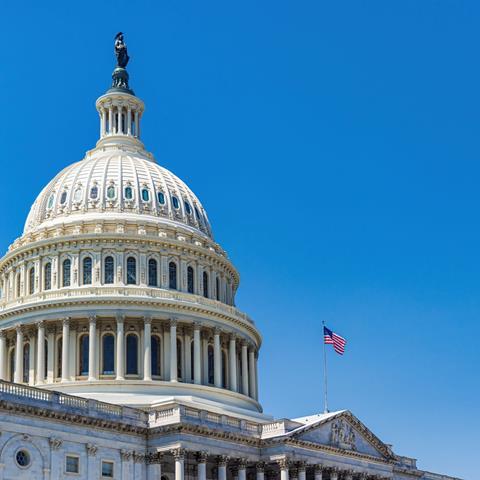By Gregory Hershman, Head of US Policy, PRI

Over the past seven months, the United States witnessed dozens of hearings across US statehouses debating legislation aimed at limiting consideration of “ESG”, or environmental, social and governance, information. All told, state lawmakers introduced approximately 165 “anti-ESG” proposals in 37 states, according to a report published by Pleiades Strategies. Most bills either sought to limit state fund managers’ usage of ESG data, or punish those companies deemed to be boycotting certain industries.
With most legislative sessions concluded though, only 28 provisions – or just over 15% – were approved, with 22 bills signed into law and six resolutions passed by legislatures. That means 137 proposals – or nearly 85% – were voted down, abandoned, or stalled in the legislative process despite a coordinated, well-funded effort to swiftly pass as much of this legislation as possible.
“The United States witnessed dozens of hearings debating legislation aimed at limiting consideration of “ESG” information, but with most legislative sessions concluded, nearly 85% were voted down, abandoned, or stalled in the legislative process despite a coordinated, well-funded effort to swiftly pass as much of this legislation as possible.”
Only 14 states approved any anti-ESG measures, with 23 rejecting or failing to approve anything (13 states saw no related anti-ESG bills introduced). Just four states account for half of approved bills: Utah approved four, both Arkansas and Florida approved three and Idaho approved two.
While most proposed legislation doesn’t make it into law each year, most legislation also doesn’t see near-total opposition in the way anti-ESG proposals did. The report from Pleiades Strategies highlights just a handful of the dozens of experts that came out to testify against these proposed bills – including finance officers, pension managers, bankers, chambers of commerce, business leaders, and even oil and gas executives. Through hundreds of pages of testimony, opponents detailed the fact that these bills would have a demonstrably negative effect on investors’, and ultimately their beneficiaries’, financial returns. While proponents failed entirely to address those concerns, a handful of markets will still have to deal with operational costs created by this legislation.
Boycott Bills
In four states – Alabama, Arkansas (and here), Utah, and Idaho – legislators followed Texas’s lead and approved boycott bills along with West Virginia, and Oklahoma.
As has been widely reported, Texas’s first-in-the-nation boycott bill cost an estimated US$300m-US$500m in higher borrowing costs for municipalities in the first nine months of implementation alone. Unfortunately, it seems Texas was the rule, and not the exception, as Oklahoma is already seeing a similar increase in borrowing costs for municipalities.
Pecuniary Bills
In seven states – Arkansas, Florida, Montana, Kansas, Kentucky, Indiana and North Carolina – lawmakers approved bills that will require managers of state funds to interpret poorly defined new rules around distinguishing pecuniary vs non-pecuniary, or avoid investments that could be deemed “social, political or ideological” by an attorney general with likely no professional investing background.
As numerous opponents to these bills – many with professional investment backgrounds – stated in testimony, the redundant or vague language used limits their impact but still creates challenges for state fund managers. One academic assessment said these bills would create a “legal quagmire” for those attempting to abide by them. North Dakota’s State Securities Commissioner laid out the practical issues well in her testimony, arguing that “pecuniary” bills create conduct standards that reside outside of federal and state securities law, and being non-uniform, would be “basically unenforceable.”
“It is unclear what genuine problem these bills are trying to solve, and as such, there is no telling what the full impact of these laws will be.”
Narrower Provisions
The remainder of the 22 new laws are narrower versions of boycott or pecuniary bills: West Virginia will prevent its fund managers from using proxy advisory services, Utah will prevent the use of a social credit score by state entities, Texas will prevent insurers from using ESG factors to charge different rates for similar clients – to name a few.
In nearly all cases, opponents to this legislation agreed: it is unclear what genuine problem these bills are trying to solve, and as such, there is no telling what the full impact of these laws will be.
In Florida, finance professionals within the legislature are still unable to predict the costs of HB3, which is now law, with the final financial impact assessment stating: “The bill imposes indeterminate costs on state and local governments and on financial institutions operating in Florida”. In Indiana, proposed legislation was rewritten to reduce an initial US$6.7bn price tag to a more acceptable US$5.5m. The final fiscal impact statement from the non-partisan Legislative Services Agency still states, however: “Potentially, the funds may earn a lower rate of return as a result of divestment, or if enforcement of the bill limits the pool of investment managers as a result of the requirements of the bill.”
The result
Despite the noise around ESG, legal changes resulting from the anti-ESG effort are minimal to date. Admittedly, the approved laws will create difficulty for investors in certain situations in some states. And the broader effort attacking ESG will continue to bring uninformed attention to responsible investment.
Ultimately, as seen in the price tags on these bills, the real impact will be felt by investors – retirees or workers – relying on these funds. Responsible investment practices in the US, however, will continue to advance and even accelerate, because despite the noise, debates across state legislatures made it clear that responsible investment practices are good for business.
The PRI blog aims to contribute to the debate around topical responsible investment issues. It is written by PRI staff members and occasionally guest contributors. Blog authors write in their individual capacity – posts do not necessarily represent a PRI view.












